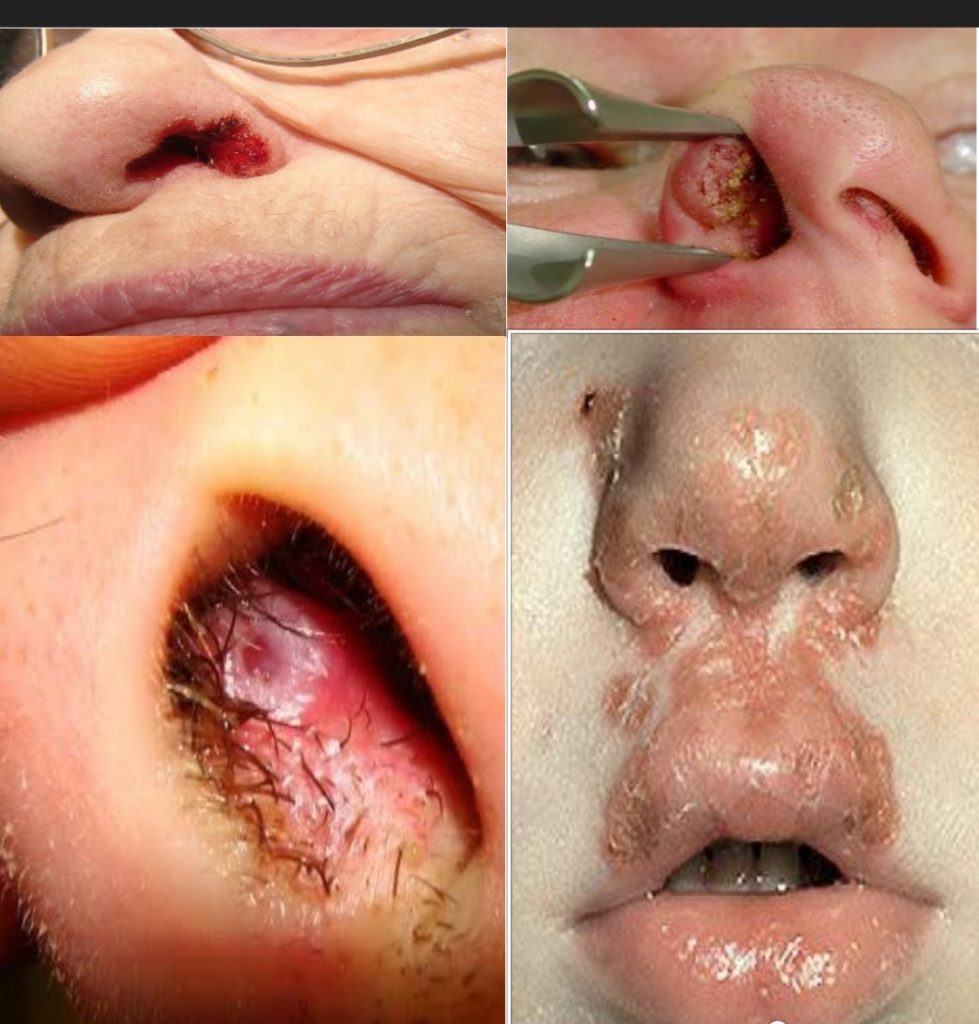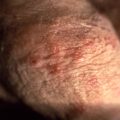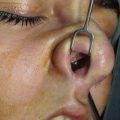Sores in the nose can be very uncomfortable as a result of the inflammation of air cavities within the passages of the nose. The inflammation often leads to bumps, ulcers, lesions or blisters in the nostrils. When a person has sores in nose, the air cavities appear to be swollen and sometimes reddish due to the accumulation of more blood in the blood vessels around the area and when touched, sores can cause quite a lot of pain.
In addition, the air can also be itchy increasing the temptation and the urge to pick the nose, which often induce more pain and discomfort or even lead to bleeding.
Sores Inside Nose Pictures

What Caused The Sores In My Nose?
The presence of painful sores in the nose can be caused by a variety of factors, some related to microorganisms and others related to inanimate things. These factors can include:
Allergic Reaction: allergy is a condition in which the immune system reacts abnormally to a foreign substance. Being exposed to things that you are allergic to can damage the sensitive skin inside your nose. Sensitivity to certain chemicals, aerosols, or even nasal sprays can cause nasal sores.
Snorting Drugs: Inhalation or snorting drugs frequently through the nostrils can irritate the sensitive skin around the nasal cavity; this irritation causes strain on the nasal cavity resulting in inflammation of air cavities in the nose which eventually leads to nasal sores .
Lupus: Lupus is a systemic autoimmune disease that occurs when your body’s immune system attacks your own tissues and organs. Inflammation caused by lupus can affect different parts of the body. Lupus patients often suffer from skin bruises, bumps, hair loss and even sores in the mouth. Though rare, some patients have also reported having sores in their noses.
Herpes: Herpes simplex is a viral disease caused by the herpes simplex virus. Infections are categorized based on the part of the body infected. Herpes is another condition that can cause sore in nose. Pathogens from this viral infection can enter your nose through the air you inhaled. Once you notice a cluster of red bumps then that is it.
Impetigo: Impetigo is a common, highly contagious bacterial skin infection. It mostly affects young children and infants. But people of any age can get it from contact with someone who is infected. Most impetigo is caused by the bacteria known as Staphylococcus aureus . It is characterized by sores all over the face and mouth. If the condition is severe, the sores can reach the inside of the nose. They can later metamorphose into blisters packed with nasty and sticky fluid within them.
Dried Up Nose: The most common cause of dry nose is blowing your nose too often, smoking tobacco/ marijuana, Sjogren’s syndrome, nutritional deficiencies, and chronic atropy. Nasal dryness can cause nasal sores due to dry air triggered by hot weather or cold weather which causes the skin around the nasal cavity to crack and when that happens, it can cause both sores and bleeding.
Persistent and unnecessary activity in the Nasal Cavity: Some people find it very difficult to keep their hands out of their nasal cavities, for these group of persons, sores in nose is quite common. Picking your nose so much can cause damages to the sensitive inner nose skin which might result in sores. In addition, activities like trimming or pulling of nasal hair can also cause sores in the nose because injury to the nasal cavity can cause an infection leading to the development of sores. People experiencing breathing problems using cpap can learn how to prevent nose sores from cpap mask.
Treatment, Prevention and Home Remedies for Sores In Nose
There are several way to prevent, manage and treat nose sores here is how to get rid of nose sores:
- Avoid Allergens as much as possible especially those that frequently trigger allergic reactions by your body
- Use ice cubes to treat the swollen area around the nose, it can provide some relief.
- Drinking more water in situations where nasal sores have been caused by dryness of the nose have been found to be very helpful.
- The use of petroleum jelly or other essential oils for sore inside nose can lubricate the nasal cavity preventing cracks in the skin that can lead to nose sores or scabs.
- Avoid picking your nose as much as you can as this will increase your risk of nasal sores.
- Maintaining proper hygiene is one of the key factors that help in the prevention of nose sores.
- Improving vitamin C consumption not only help prevent infection and sores, it can also help nasal sores heal quickly. Vitamin C has many roles in your body and has been linked to impressive health benefits including the repair and regeneration of tissues.




